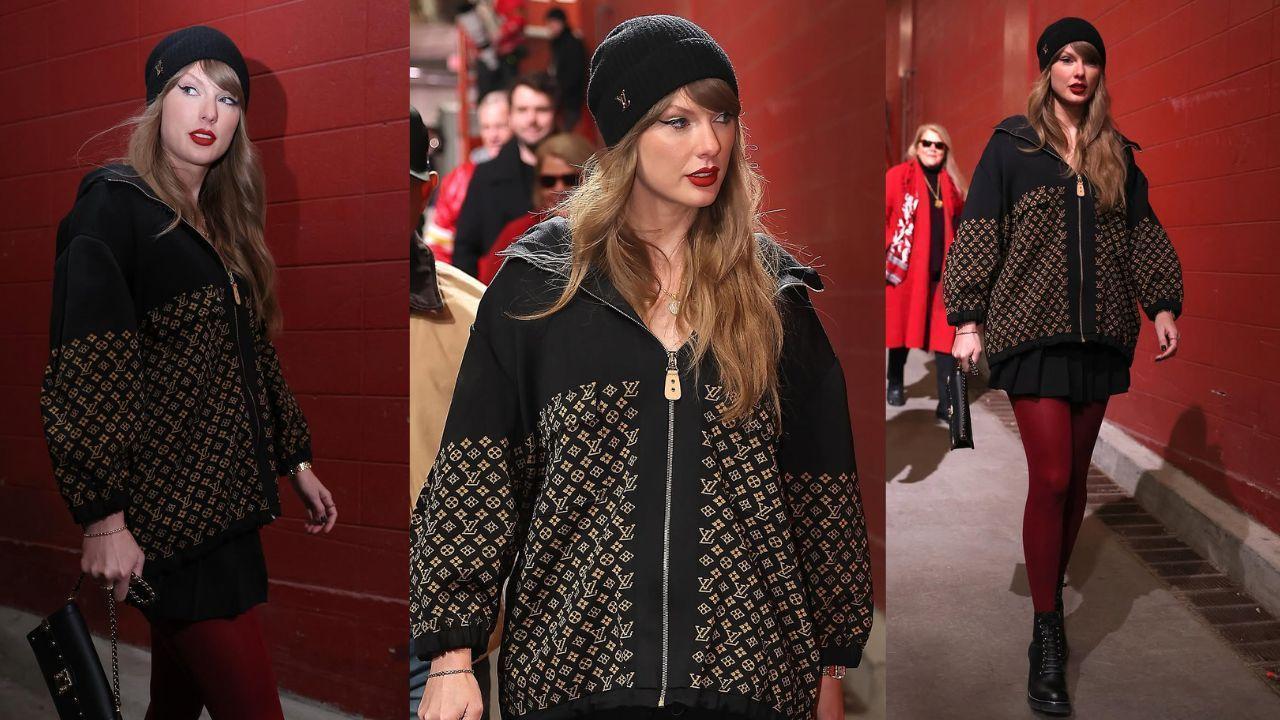
The Future of Fashion: How Technology is Revolutionizing the Industry:
When we think about what the world might look like in twenty years, we often imagine fantastical scenes straight out of science fiction - flying cars zipping through the sky, or humans living on Mars. But amidst these dreams of tomorrow, there's one area that's quietly but profoundly changing: the fashion industry.
As the CEO of a fashion-tech company, I'm constantly scanning the horizon for the next big thing, the innovations that will shape our industry's future. And let me tell you, the seeds of that future are already taking root. They're in things like artificial intelligence, machine learning, and the ever-evolving world of blockchain and cryptocurrencies. But here's the thing: it's not just about the technology itself. It's about who's going to step up and use it to build something new, something that connects everyone involved in making and selling clothes - from the folks who stitch them together, to the shops that sell them to us.
Let's break it down a bit:
-The Inventory Problem: Ever heard about those massive piles of unsold clothes sitting in warehouses? Yeah, that's a big problem. Companies like H&M and Under Armour have billions of dollars worth of inventory just gathering dust. Why? Well, part of it is because buying and selling clothes in bulk is kind of a mess. There's no standard way of doing it, which means stuff gets lost or delayed, and everyone loses out.
-The Transparency Problem: When you buy a shirt or a pair of jeans, do you ever wonder where they came from? Turns out, a lot of big companies use factories all over the world to make their stuff, and not all of those factories treat their workers well. Blockchain, though, could change all that. It's like a digital ledger that tracks every step of a product's journey, so you know exactly where your clothes are coming from, and that they were made in a way that's fair to everyone involved.
-The Fees and Costs Problem: You wouldn't believe how much paperwork goes into making and selling clothes. Contracts, invoices, shipping documents - it's enough to make your head spin. But what if we could replace all that with something simpler, something like a smart contract? It's basically a digital agreement that takes care of all the boring stuff automatically, saving time and money for everyone.
-The Supply Chain Problem: Fast fashion - you know, those cheap clothes you see everywhere? Turns out, they're not so great for the planet. They're made in huge quantities, and a lot of them end up getting thrown away. But what if we could change that? What if we could use technology to make the fashion industry more about what people actually want, instead of just churning out stuff nobody needs?
The Inventory Problem:
The challenge with unsold inventory is a pervasive issue, especially for renowned brands like H&M and Under Armour. Imagine massive warehouses filled to the brim with clothes and sportswear that nobody wants to buy. It's like having a closet full of outfits you never wear – but on a colossal scale.
This surplus of unsold goods isn't just a problem for the companies themselves; it affects everyone involved in the fashion supply chain. From manufacturers to wholesalers to retailers, each step of the process grapples with the repercussions of excess inventory.
Part of the problem lies in the way fashion businesses buy and sell their products. Without standardized procedures for bulk purchasing, chaos ensues. Multiple suppliers, varying supply chains, and disparate systems make it incredibly challenging to manage inventory efficiently.

Picture this: one supplier might deliver a batch of shirts, while another sends over a load of pants. Each item follows its own journey through the supply chain, creating a logistical puzzle that's tough to solve. And when you're dealing with thousands of different products from countless suppliers, the puzzle becomes even more complex.
As a result, companies end up with mountains of unsold inventory. These excess goods not only take up valuable space in warehouses but also tie up significant financial resources. Imagine the cost of storing, maintaining, and eventually disposing of all those unsold items – it's a financial burden that can cripple even the biggest players in the industry.
Furthermore, the lack of standardization leads to inefficiencies and errors in forecasting demand. Without accurate predictions, companies struggle to match supply with actual customer preferences, exacerbating the problem of surplus inventory.
In essence, the inventory problem is a symptom of a larger systemic flaw in the fashion industry. To address it, stakeholders must work together to establish standardized processes for buying and selling, streamline supply chains, and adopt technologies that enable better inventory management. Only then can we mitigate the logistical nightmares and financial losses associated with excess inventory, paving the way for a more sustainable and profitable future for the fashion industry.
The Transparency Problem:
In today's interconnected world, products often travel through complex global supply chains before reaching consumers' hands. While these supply chains are essential for meeting the ever-growing demand for goods, they can also conceal unethical practices lurking in the shadows.
Consider a scenario where a popular clothing brand contracts manufacturers from various countries to produce its garments. Despite rigorous quality checks and audits, some of these manufacturers may engage in exploitative labor practices or cut corners to reduce costs. Unfortunately, such practices often go unnoticed until they are exposed by investigative journalists or advocacy groups.
Enter blockchain technology, a revolutionary tool that holds the promise of bringing transparency to these opaque supply chains. At its core, blockchain is a decentralized digital ledger that records transactions across a network of computers. Each transaction, or "block," is linked to the previous one, creating a chain of immutable records.
So, how does blockchain enhance transparency in the fashion industry? Imagine a scenario where every step of a garment's journey, from raw material sourcing to manufacturing to distribution, is recorded on a blockchain. Each participant in the supply chain, whether it's a cotton farmer, a textile mill, or a shipping company, contributes data to the blockchain in real-time.
As a result, brands and consumers can trace the origins of a product with unprecedented accuracy. Want to know where the cotton in your T-shirt was grown? Blockchain can provide that information. Concerned about the working conditions in the factory that stitched your jeans? Blockchain can shed light on that too.
By leveraging blockchain technology, brands can demonstrate their commitment to ethical sourcing and responsible manufacturing practices. They can hold suppliers accountable for adhering to labor standards and environmental regulations, thus reducing the risk of exploitation and abuse in the supply chain.
For consumers, blockchain offers peace of mind, knowing that they are supporting brands that prioritize transparency and sustainability. Armed with access to detailed information about the products they buy, consumers can make informed choices that align with their values.
In essence, blockchain serves as a powerful tool for transforming the fashion industry into a more transparent and ethical ecosystem. By shining a light on the hidden corners of supply chains, it empowers brands and consumers alike to build a more equitable and sustainable future.
The Fees and Costs Problem:
In the intricate world of fashion, every transaction involves heaps of paperwork, from contracts to invoices, supplier manuals to delivery documentation. This bureaucratic maze not only consumes time but also drains resources, making the industry less efficient than it could be.
But fear not, for there's a beacon of hope on the horizon: smart contracts. Picture these contracts as digital wizards, capable of automating tasks and cutting through the red tape with ease. By encoding agreements into computer code and executing them automatically when conditions are met, smart contracts streamline processes, saving time and money for everyone involved.
Moreover, smart contracts instill a newfound sense of trust among stakeholders. With transactions recorded immutably on a blockchain, there's no room for disputes or foul play. Each party can rest assured that the terms of the agreement will be upheld faithfully, fostering stronger relationships and smoother collaborations.
In essence, smart contracts are the game-changers the fashion industry has been waiting for. By revolutionizing how transactions are conducted, they pave the way for a future where efficiency reigns supreme, and paperwork becomes a relic of the past.
The Supply Chain Problem:
In the fast-paced world of fashion, speed is everything. Brands churn out new designs at breakneck speed, hoping to capture the latest trends and win over consumers. But this rapid production comes at a cost: a surplus of unsold inventory that piles up faster than it can be sold.
Imagine rows upon rows of clothes languishing on shelves, tags still attached, waiting for buyers who may never come. This excess inventory not only takes up valuable space but also eats into profits, leaving retailers with hefty losses.
Enter blockchain technology, a game-changer in the fight against fashion waste. Traditionally, supply chains operate on a linear model, with goods flowing from manufacturer to retailer. But blockchain flips this model on its head, ushering in a new era of demand-driven supply chains.
Instead of blindly churning out clothes in anticipation of demand, retailers can now tap into real-time data to gauge consumer preferences and tailor their production accordingly. This shift from supply chains to demand chains allows brands to produce only what is needed, reducing waste and minimizing the environmental impact.
But the benefits of blockchain extend beyond inventory management. By providing an immutable record of every transaction, blockchain increases transparency and accountability throughout the supply chain. This means consumers can trace the journey of their clothes from factory to store, ensuring ethical practices every step of the way.

In essence, blockchain is revolutionizing the fashion industry, paving the way for a more sustainable and efficient future. By embracing this technology, brands can not only reduce waste and cut costs but also build trust with consumers who demand transparency and accountability.
The Pricing Problem:
In the ever-evolving world of fashion, finding that delicate balance between affordability and quality is akin to striking gold. Companies today are delving deep into the realm of data-driven insights to decipher the enigmatic code of consumer preferences.
Picture this: a bustling fashion studio buzzing with activity, but behind the scenes, there's more than just design sketches and fabric swatches. Here, sophisticated algorithms and cutting-edge technology take center stage. Artificial intelligence and machine learning algorithms sift through mountains of data, from past purchases to browsing behavior, to paint a vivid portrait of the modern-day shopper.
But it's not just about crunching numbers and analyzing trends. It's about understanding the nuances of human behavior, the subtle shifts in taste and preference that define our ever-changing fashion landscape. Armed with this invaluable insight, companies tailor their offerings with surgical precision, crafting garments and accessories that resonate on a deeply personal level.
And the results? They speak volumes. From personalized recommendations to targeted marketing campaigns, companies leverage these insights to not just meet but exceed consumer expectations. It's about more than just selling products; it's about forging lasting connections, building brand loyalty, and fostering a sense of community.
In this brave new world of fashion, every click, every swipe, every purchase is a piece of the puzzle. And as companies continue to harness the power of data-driven insights, the future of fashion looks brighter than ever before. So, the next time you slip into that perfect pair of jeans or don that statement accessory, remember—it's not just fashion, it's the culmination of art, science, and a touch of magic.
Summary:
The fashion industry is undergoing a transformative revolution, driven by advancements in technology. From blockchain to artificial intelligence, these innovations are reshaping every aspect of the industry, from production to sales. This article explores the challenges facing the fashion industry and how technology is poised to address them. From inventory management to supply chain optimization, transparency, and pricing strategies, technology offers solutions that promise a more sustainable, efficient, and consumer-centric future for fashion.
Disclaimer:
The views and opinions expressed in this article are those of the author and do not necessarily reflect the official policy or position of DXB News Network. The information provided in this article is for general informational purposes only and should not be construed as professional advice. Readers are encouraged to conduct their own research and consult with relevant experts or professionals before making any decisions based on the information provided. DXB News Network does not endorse any specific products, services, or companies mentioned in this article.
#FashionTechRevolution #InnovationsInFashion #TechSolutionsForFashion #FashionForwardTech #FutureFashion #TechTransformingFashion #FashionIndustryInnovation #FashionTechTrends #FashionTechInnovations #TechDrivenFashion #FashionTechLeadership #breakingnews #worldnews #headlines #topstories #globalUpdate #dxbnewsnetwork #dxbnews #dxbdnn #dxbnewsnetworkdnn

Sheikh Dr. Sultan bin Mohammed Al Qasimi, Ruler of Sharjah, has issued an Emiri Decree to establish and organize the Sharjah Creative Quarter (SCQ)...Read More.

Ruling BJP and allies proposed 23 changes to the Waqf Amendment Bill, while the opposition suggested 44, but none were accepted...Read More.
 Taylor Swift Stuns in ₹4.5 Lakh Louis Vuitton Jacket at Travis Kelce's Match
Taylor Swift Stuns in ₹4.5 Lakh Louis Vuitton Jacket at Travis Kelce's Match
Taylor Swift's Louis Vuitton jacket stole the spotlight as she cheered for boyfriend Travis Kelce du
 Gulf Giants Secure Six-Wicket Victory Over Sharjah Warriorz
Gulf Giants Secure Six-Wicket Victory Over Sharjah Warriorz
Tom Alsop played a brilliant knock, scoring an unbeaten 85 to lead Gulf Giants to a stunning six-wic
 Dubai's Real Estate Market Stays Among the World’s Best: Hamdan bin Mohammed
Dubai's Real Estate Market Stays Among the World’s Best: Hamdan bin Mohammed
Dubai’s real estate sector sees AED761B in transactions and 2.78M procedures in 2024
 Tamer Ashour & Adam to Perform at Al Majaz Amphitheatre on February 15
Tamer Ashour & Adam to Perform at Al Majaz Amphitheatre on February 15
Tamer Ashour & Adam to perform at Al Majaz Amphitheatre on Feb 15, promising a captivating night
 Keys Stuns Sabalenka to Win First Grand Slam Title
Keys Stuns Sabalenka to Win First Grand Slam Title
Madison Keys defeated top seed Aryna Sabalenka 6-3, 2-6, 7-5 to win her first Grand Slam title at th
Sharjah Ruler Approves Creation of Sharjah Creative Quarter

Sheikh Dr. Sultan bin Mohammed Al Qasimi, Ruler of Sharjah, has issued an Emiri Decree to establish and organize the Sharjah Creative Quarter (SCQ)
2 Non-Muslim Members Among 14 Changes in Waqf Amendment Bill

Ruling BJP and allies proposed 23 changes to the Waqf Amendment Bill, while the opposition suggested 44, but none were accepted
Exploring Dubai's Art and Culture Beyond the Skyscrapers

Discover Dubai's vibrant art and culture beyond its famous skyline.
Drug Kingpin Arrested After Wife's Social Media Reveals Location

Rodriguez shared photos at landmarks like the Eiffel Tower and Trevi Fountain, attracting DEA agents monitoring the couple's online movements
Thousands Return to North Gaza for 1st Time Since War as Israel Opens Crossings

After news of open crossings, tens of thousands of Gazans started walking north on Monday morning, carrying their belongings
Taylor Swift Stuns in ₹4.5 Lakh Louis Vuitton Jacket at Travis Kelce's Match

Taylor Swift's Louis Vuitton jacket stole the spotlight as she cheered for boyfriend Travis Kelce during the AFC Championship game
Anushka Sharma Stuns in Yellow Lehenga Worth ₹1.6 Lakh

Anushka Sharma is radiating elegance in her yellow lehenga designed by Mahima Mahajan. The stunning outfit exudes royal charm and costs ₹1.6 lakh, leaving every
Palestinian Voices Shine at Sundance Film Festival 2025

Palestinian-American director Cherien Dabis, set to shoot her personal drama *All That’s Left Of You* in the West Bank, was forced to reconsider her plans after
Colombia Reverses Deportation Decision After Trump’s Threats

Colombia agrees to accept deported citizens after Trump's tariff threat on Sunday, reversing defiance to US plans
From Underdogs to Winners: Amazing Comebacks in Sports

Discover inspiring sports comebacks where underdogs triumphed
3001E, 30 Floor, Aspin Commercial Tower, Sheikh Zayed Road, Dubai, UAE
+971 52 602 2429
info@dxbnewsnetwork.com
© DNN. All Rights Reserved.